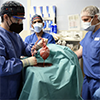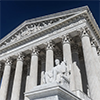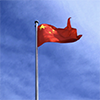Your Colleagues in the NewsCheck out the top-reaching stories of academic impact in traditional media. Metrics draw from English-language print, broadcast and online global media outlets. | Top stories (Jan. 6-12*) |
-
A team of astronomers including Weinberg's Raffaella Margutti observe, for the first time, a red supergiant before, during and after a supernova explosion, gathering crucial new information about the star's final death throes. Margutti was cited in 165 stories for a reach of 12.1 million. Top outlets include CNET, NBC News, CBS News, Mashable and CNN.
-
Feinberg's Robert Murphy comments on the low COVID-19 vaccination rates for U.S. children, calling the trend "disturbing." Murphy was cited in 329 stories for a reach of 11.1 million. Top outlets include Forbes, U.S. News, The Independent, PBS and the Associated Press.
-
Feinberg's Robert Murphy and Mercedes Carnethon explain why it is not a good idea to try to gain natural immunity by intentionally contracting COVID-19. They were cited in 83 stories for a reach of 4.1 million. Top outlets include Business Insider, the Chicago Tribune and CNN.
*To allow time for data processing and validation, the reporting period for top stories and quantitative media metrics runs Thursday-Wednesday. |  |
| In the spotlight | Read in-depth coverage of Northwestern faculty work and research. |  From CNN One day soon, you may have a tool to help you quickly learn and retain names and faces, according to a new study. Researchers from Northwestern University found playing a recording of people's names during a night's deepest sleep period reinforced peoples' memories and improved their ability to recall names and faces the next morning.
"Our study showed that when memories are reactivated during sleep, memory abilities can be improved after you wake up," said senior author Ken Paller, a professor of psychology and director of the Cognitive Neuroscience Program at Northwestern University. |
| NU Voices | Read perspectives from Northwestern faculty in national media. |  From Elisa J. Gordon, The Washington Post "Xenotransplantation holds great promise as a way to overcome the organ shortage. Yet there are many steps to take before animal organs can be made available in routine medical care. With the recent news of these groundbreaking transplant developments, addressing the ethical, policy and regulatory factors involved is urgently needed: More than 6,000 people are expected to die this year for lack of an available organ," Gordon and coauthors write for The Washington Post. |  From Tricia Pendergrast, STAT "Here’s how I describe being in medical school during the coronavirus pandemic: It feels like I’m starting a job at a new building, except the building is on fire and everyone is rushing outside as they try to save their own lives," Pendergrast writes in STAT. |  From Stephen Lubet, The Hill "Supreme Court Chief Justice John Roberts has a math problem. In his recently issued Year-End Report on the Federal Judiciary, the chief made a basic mistake that would be obvious to anyone who encounters simple math concepts – ratios, proportions, averages – in their work or pastimes, including sports fans, teachers, fulfillment center operators, bakers, mechanics, even lawyers and many others. Roberts’s miscalculation matters because it downplays an ethics problem among federal judges," Lubet writes in The Hill. |  From Andrew Koppelman, The Hill "Suppose Congress passed a law commanding the Occupational Safety and Health Administration (OSHA) to prevent deadly dangers in the workplace and to act quickly if those dangers arise unexpectedly. And then suppose the Supreme Court declared that the bigger the emergency is, the less power OSHA has. OSHA can move fast to prevent a few bad injuries, but not if hundreds of thousands are dying. That is, in essence, what the Supreme Court said on Thursday," Koppelman writes in The Hill. |  From Nancy Qian, The Korea Times "Many expect the Chinese government to use its role as host to solidify its political power both domestically and internationally. The U.S.-led diplomatic boycott of the Games to protest China's alleged human-rights violations against Uyghurs in Xinjiang has frustrated both the Chinese authorities and human-rights activists. The controversy is not baseless, but they reflect myopic perspectives. A sober assessment suggests that the Winter Games also are likely to have some important long-run benefits for both China and the wider world," Qian writes in The Korea Times. |
| About | This weekly newsletter serves as a resource for faculty and communications staff, sharing news opportunities and highlighting faculty and University successes in traditional media. It also provides communications tools such as media training resources and announcements about upcoming sessions.
By providing these resources, we hope to help faculty show their expertise to a national and international audience as well as recognize those who are making an impact.
We welcome your feedback on this and all of our communications tools. You can reach us any time at media@northwestern.edu.
Subscribe to Northwestern in the Media. |
|
|






